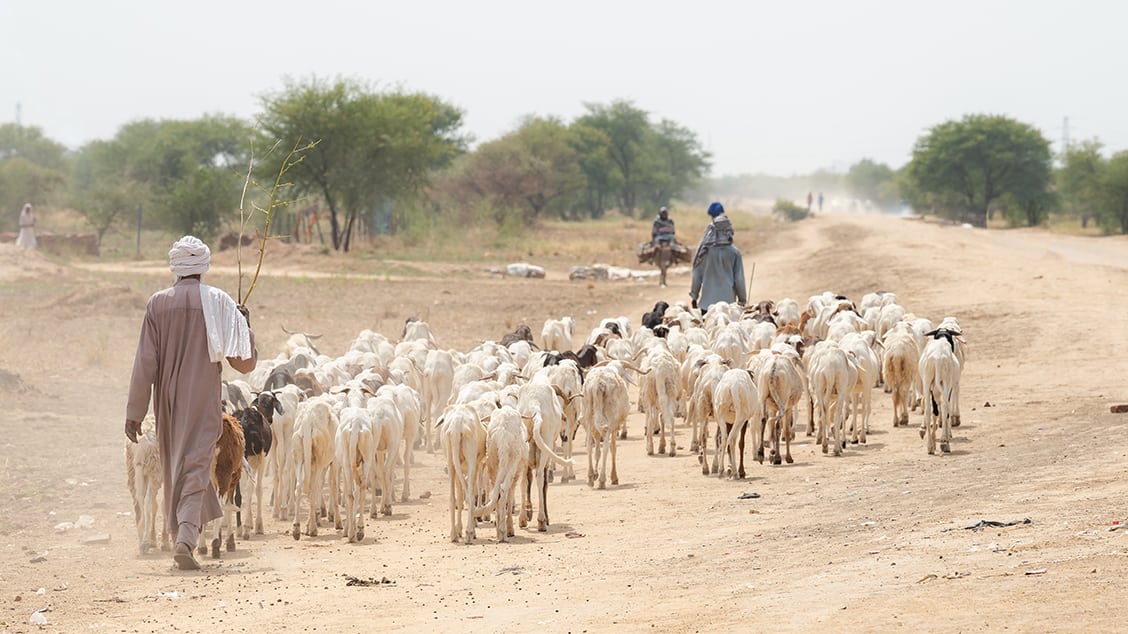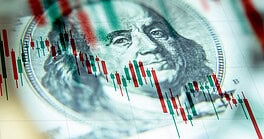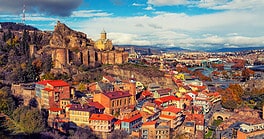The world’s poorest countries suffer from civil wars, ethnic and sectarian strife. COVID-19, soaring inflation and the war in Ukraine made their bad situations worse.
The world has enough wealth and resources to ensure that the entire human race enjoys a decent standard of living. Yet people countries like Burundi, South Sudan and the Central African Republic continue to live in desperate poverty. For other likely contenders for the undesirable title of the world’s poorest country—Afghanistan, Syria and Yemen—years of ongoing conflict make it impossible to even attempt an assessment due to the lack of reliable economic figures.
So how do we determine the poorest countries in the world? While GDP per capita is often considered the standard metric, compensating for differences in living costs and rates of inflation by using purchasing power parity (PPP) can better assess an individual’s buying power in any given country.
It is hard to pinpoint a single cause for long-term poverty. Corrupt governments can make a very rich nation into a poor one. And so can a history of exploitative colonization, weak rule of law, war and social unrest, severe climate conditions or hostile, aggressive neighbors. Weaknesses compound: A country in debt will not be able to afford good schools, and a poorly educated workforce will limit capacity.
Underprivileged households worldwide suffered the severest social and economic consequences of the coronavirus pandemic. In the world’s poorest countries with their high level of informal employment, there were no social safety nets or temporary loans to keep businesses open and workers employed. The World Bank has forecasted that in low and middle-income countries, the current generation of students could lose up to 10% of their future average annual income.
Before Covid-19, the fraction of the world’s population living in extreme poverty—meaning on less than $1.90 a day—had fallen below 10% from more than 35% in 1990. The pandemic not only halted but reversed that progress: since the onset of the health emergency to the end of 2022, when in response to the rising cost of living the International Poverty Line (IPL) was also revised to $2.15, the IMF estimated that an additional 198 million people were likely to have entered the ranks of the extremely poor.
The good news, according to a recent analysis by a group of economists at the World Bank, is that global poverty appears now to have receded to levels closer to those before the pandemic. The bad news is not just that around 700 million people around the world still live on less than $2.15 per day, but that we have lost three years in the fight against poverty. Further, nearly 50% of the world’s population live under the upper-middle income poverty line of $6.85 a day: this means that it takes more money to be considered poor in a richer country. Most importantly, the recovery has been uneven: “While extreme poverty in middle-income countries has decreased, poverty in the poorest countries and countries affected by fragility, conflict or violence is still worse than before the pandemic.”
Top 10 Poorest Countries in the World
Below is a ranking of the ten poorest countries, starting from the country ranked tenth poorest and progressing to the country ranked as the top poorest in the world for 2023. For the complete ranking of the world’s countries from poorest to richest, click here.
| Rank | Country/Territory | GDP-PPP ($) |
| 10 | 🇲🇬Madagascar | 1,907 |
| 9 | 🇹🇩Chad | 1,807 |
| 8 | 🇱🇷Liberia | 1,789 |
| 7 | 🇲🇼Malawi | 1,668 |
| 6 | 🇲🇿Mozambique | 1,584 |
| 5 | 🇳🇪Niger | 1,579 |
| 4 | 🇨🇩Democratic Republic of the Congo | 1,579 |
| 3 | 🇨🇫Central African Republic | 1,109 |
| 2 | 🇧🇮Burundi | 890 |
| 1 | 🇸🇸South Sudan | 476 |
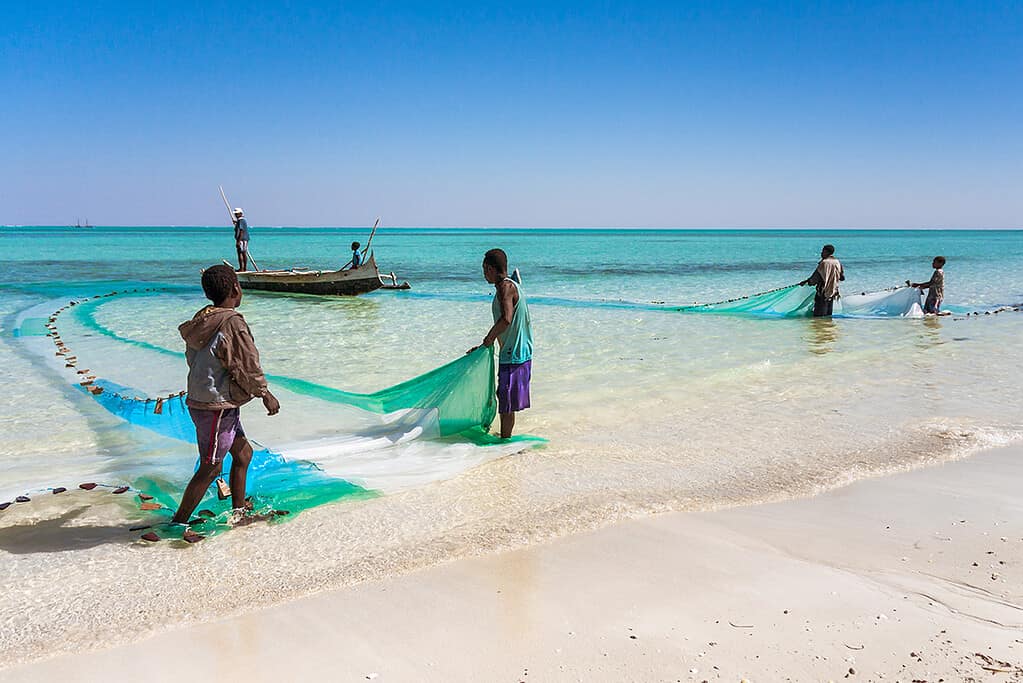
10. Madagascar🇲🇬
Current International Dollars: 1,907 | View Madagascar’s GDP & Economic Data
Since becoming independent from France in 1960, Madagascar has experienced bouts of political instability, violent coups and disputed elections. Elected in 2019, president Andry Rajoelina came to power promising to tackle corruption, reduce poverty, and develop the economy. Mostly, they turned out to be just that: promises. Madagascar still holds one of the highest poverty rates in the world at about 75%, growth is sluggish, and inflation stands at about 10%.
To be fair, the country has also faced an unprecedented series of challenges. Along with the economic and social consequences of the Covid-19 pandemic, in 2021 Madagascar suffered what the United Nations called the world’s first famine caused by climate change, and in 2022—when grain deliveries from Ukraine collapsed as a consequence of the Russian invasion—food prices skyrocketed, adding further to the misery for the people of the island.
9. Chad🇹🇩
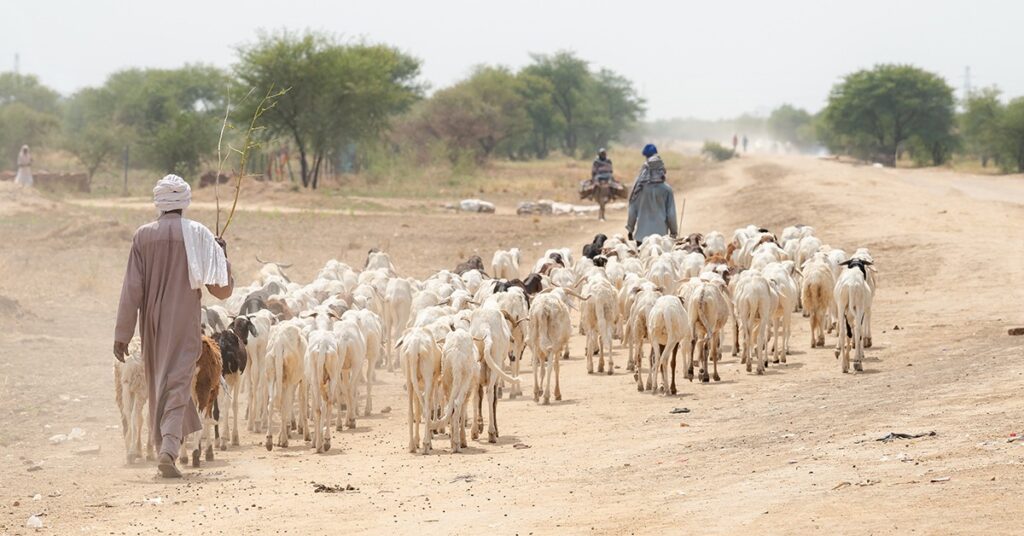
Current International Dollars: 1,807 | View Chad’s GDP & Economic Data
Chad has Africa’s tenth-largest oil reserves yet poverty remains widespread, making it the ninth poorest country in the world. Most of the windfall from the nation’s 2003 oil find was spent by the country’s autocratic ruler, Idriss Deby, on fighting rebels and cracking down
on any form of dissent. When Deby was killed in 2021, a military council headed by his son, Mahamat Idriss, took control of the country. The constitution was suspended shortly thereafter, and both the government and the parliament dissolved. Backed by the military, he remains the “transitional” head of state to this day.
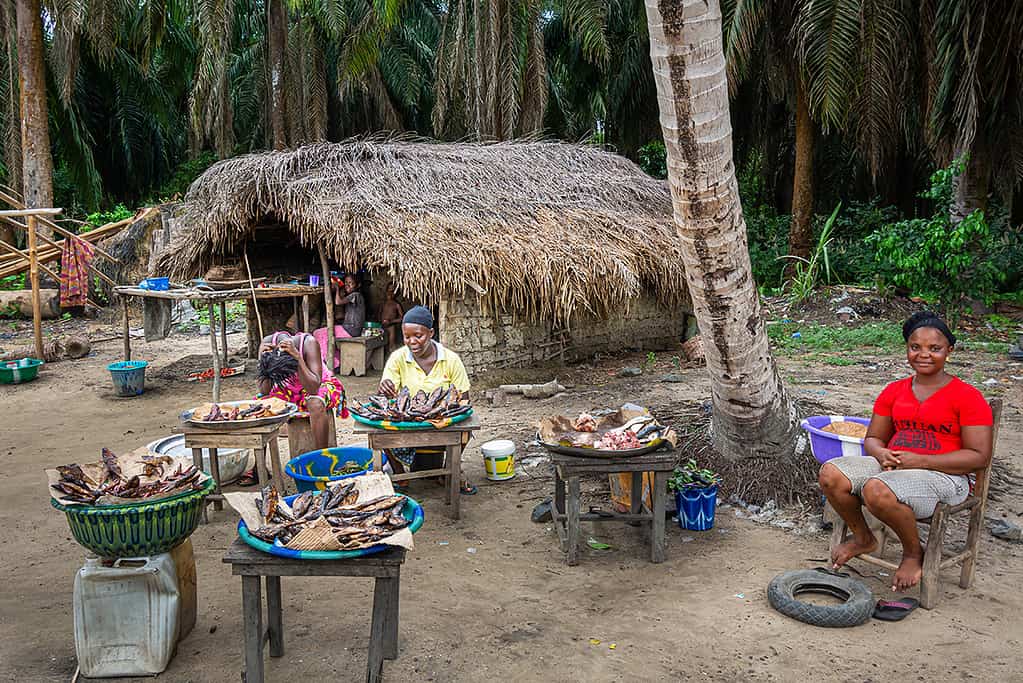
8. Liberia🇱🇷
Current International Dollars: 1,789 | View Liberia’s GDP & Economic Data
Africa’s oldest republic has ranked amongst the poorest countries in the world for many years. Expectations were high when the former football star George Weah became president in 2018. His years in office were instead marred by high inflation, unemployment and negative economic growth, until in 2023 he was defeated by opposition leader and former vice-president Joseph Boakai in a new round of elections. Boakai might have it easier than Weah: after contracting in 2020 and 2021, growth re-started in 2022, and it is projected to reach about 4% in 2024.
7. Malawi🇲🇼
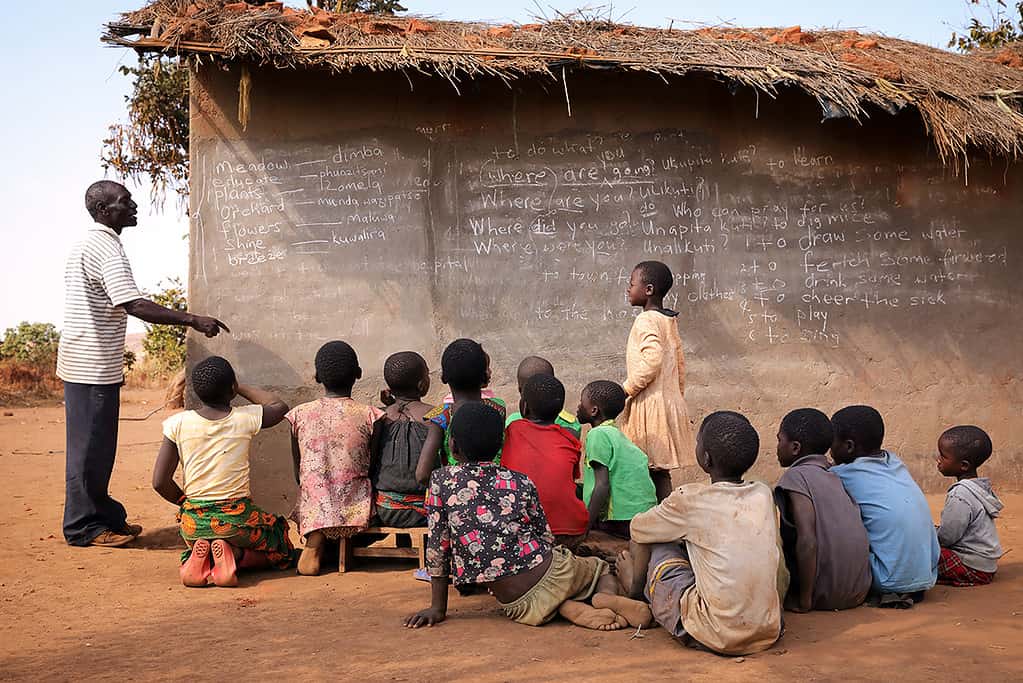
Current International Dollars: 1,688 | View Malawi’s GDP & Economic Data
One of Africa’s smallest nations, Malawi’s economy—largely dependent upon rain-fed crops—remains vulnerable to weather-related shocks. Food insecurity in rural parts is extremely high.
Malawi has enjoyed stable governments since it gained independence from Britain in 1964. However, in 2020, the constitutional court annulled former president Peter Mutharika’s win in the general elections citing vote tampering. Theologian and politician Lazarus Chakwera, who was sworn in his place, declared that he wanted to provide the kind of leadership that makes everybody prosper, but structural changes have been slow to materialize. Today, Malawi is grappling with an economic crisis that has led to fuel shortages, a surge in food prices, and a sharp devaluation of the currency.
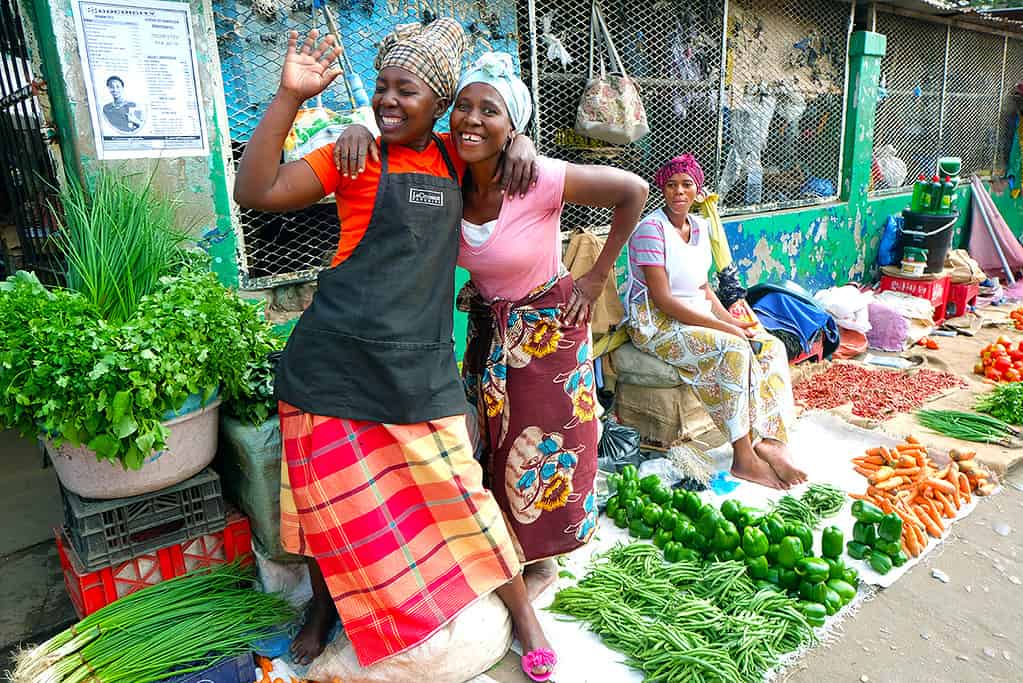
6. Mozambique🇲🇿
Current International Dollars: 1,584 | View Mozambique’s GDP & Economic Data
Rich in resources and strategically located, this former Portuguese colony has often posted average GDP growth rates of more than 7% in the past decade. Yet it remains mired among the ten poorest countries in the world, with severe climate conditions and political instability being some of the main culprits. To make things worse, since 2017 attacks carried out by Islamic insurgent groups have plagued the gas-rich northern part of the country. Still, according to the IMF, the economy remains in high gear: it grew by 7% in 2023, and it is projected to continue at about 5% this year and the next.
5. Niger🇳🇪
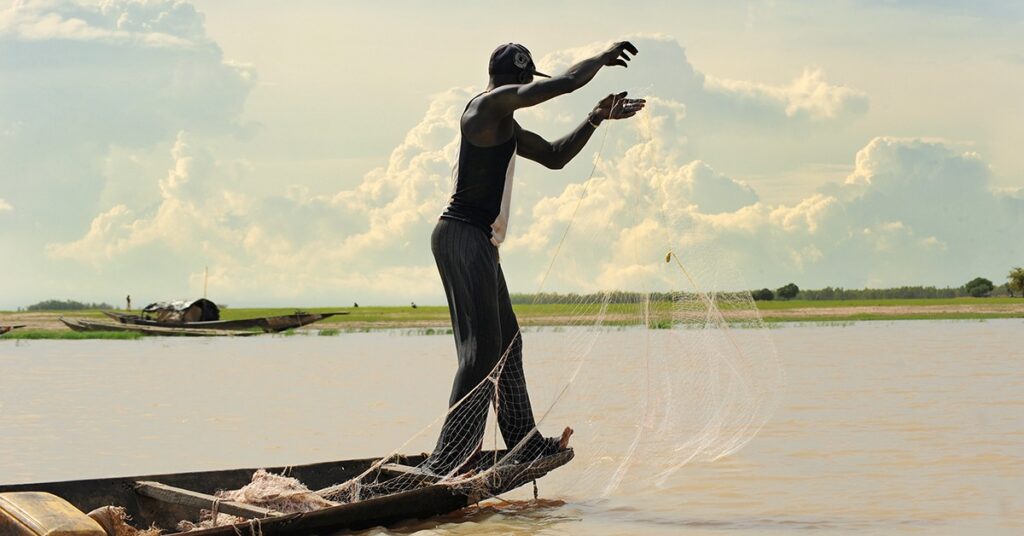
Current International Dollars: 1,600 | View Niger’s GDP & Economic Data
With 80% of its landlocked territory covered by the Sahara Desert and a rapidly growing population dependent upon small-scale agriculture, Niger is under threat from desertification. Food insecurity is high, as are disease and mortality rates. Recurrent clashes of the army with the Islamic State (ISIS) affiliate Boko Haram have displaced thousands.
In 2021, Niger inaugurated a new president—ex-teacher and former interior minister Mohamed Bazoum—in its first democratic transfer of power. With the economy expanding by 12% in 2022, things appeared to be looking up. Yet, in the summer of 2023, Bazoum was ousted and imprisoned by members of his presidential guard. The military junta has remained in power ever since.
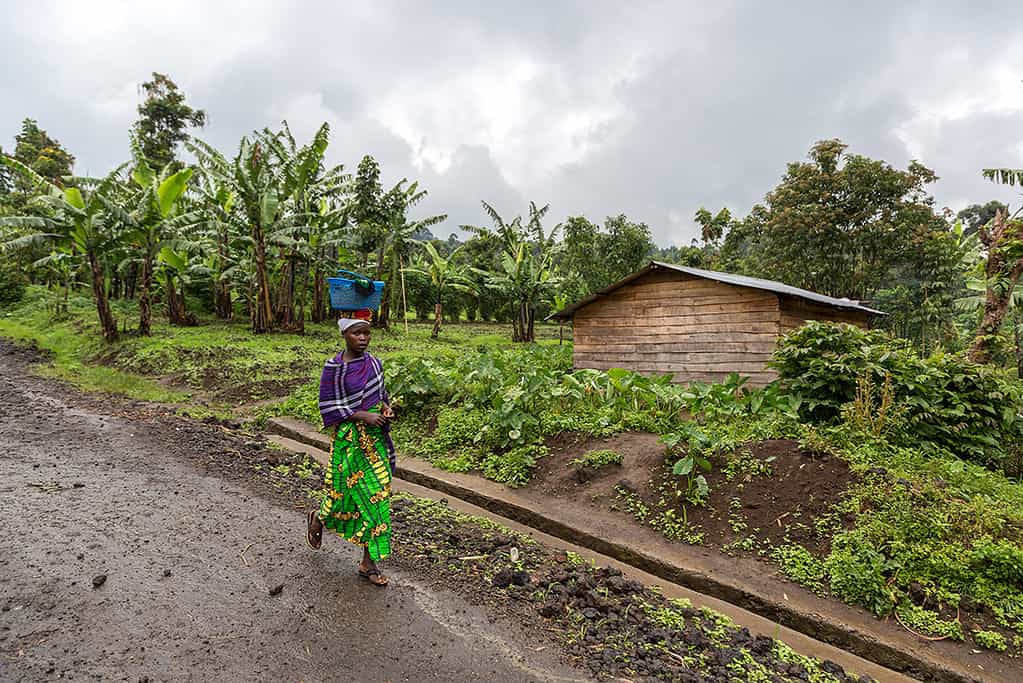
4. Democratic Republic of the Congo (DRC)🇨🇩
Current International Dollars: 1,510 | View DRC’s GDP & Economic Data
Since gaining independence from Belgium in 1960, the DRC has suffered decades of rapacious dictatorship, political instability and constant violence, making it a regular in our rankings of the world’s poorest countries. About 65% of the country’s roughly 100 million population gets by on less than $2.15 a day. Yet the World Bank says the DRC has the resources and potential to become one of the richest countries in Africa and a growth-driver for the entire continent. The country is already the world’s largest producer of cobalt and Africa’s leading source of copper—essentials in the production of electric vehicles.
3. Central African Republic (CAR)🇨🇫
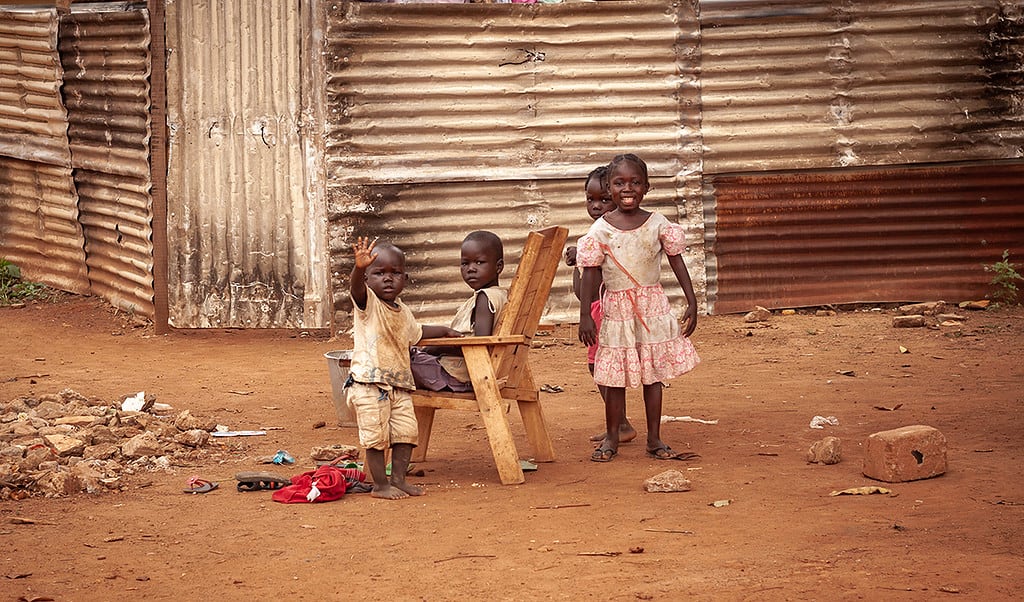
Current International Dollars: 1,127 | View CAR’s GDP & Economic Data
Rich in gold, oil, uranium and diamonds, the Central African Republic is a very wealthy country inhabited by very poor people, and has been among the poorest countries in the world for the better part of a decade. For the first time since its independence from France in 1960, in 2016 the Central African Republic has democratically elected a president: former mathematics professor and prime minister Faustin Archange Touadéra, who campaigned as a peacemaker who could bridge the divide between the Muslim minority and the Christian majority.
Yet, while his successful election has been seen as an important step towards national reconstruction, large swaths of the country remain controlled by anti-government and militia groups. Despite problems and setbacks, in recent years growth has moderately picked up, driven by the timber industry, the revival of the agricultural sector, and the partially resumed sale of diamonds.
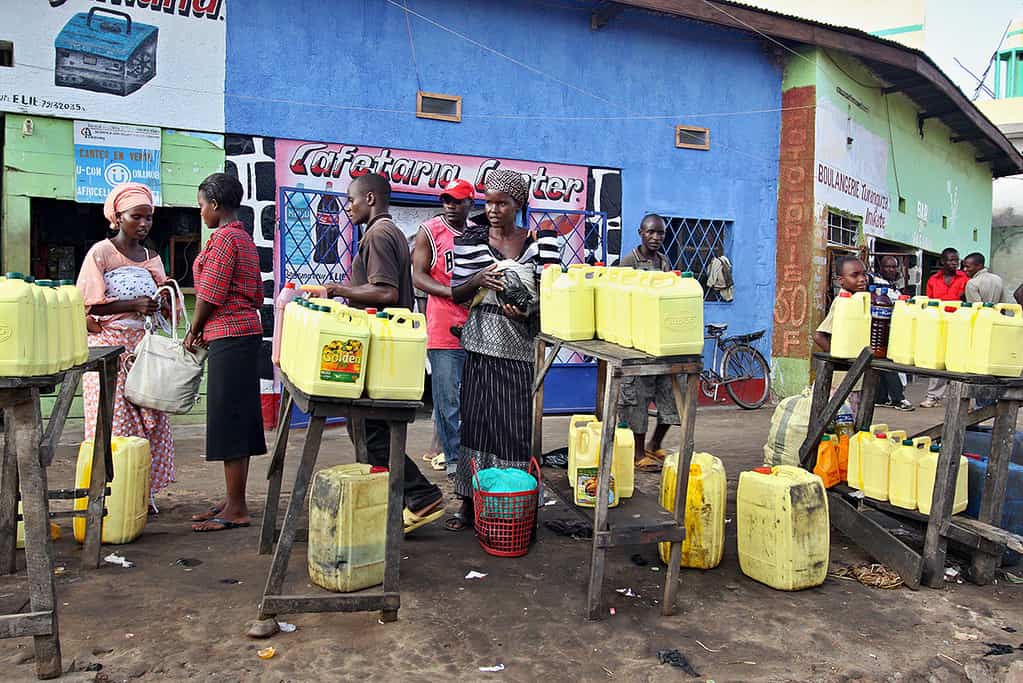
2. Burundi🇧🇮
Current International Dollars: 890 | View Burundi’s GDP & Economic Data
Tiny landlocked Burundi lacks natural resources and has been scarred by a 12-year civil war, contributing to its ranking of second-poorest country in the world. With about 80% of Burundi’s roughly 13 million citizens relying on subsistence agriculture, food insecurity is almost twice as high as the average for sub-Saharan African countries. Furthermore, access to water and sanitation remains very low and less than 5% of the population has electricity. President Evariste Ndayishimiye has made an effort to relaunch the economy and repair diplomatic relationships, and in 2022 both the US and the European Union resumed aid after lifting financial sanctions. Unfortunately, while growth is picking up, inflation is projected this year to be around 16%.
1. South Sudan🇸🇸
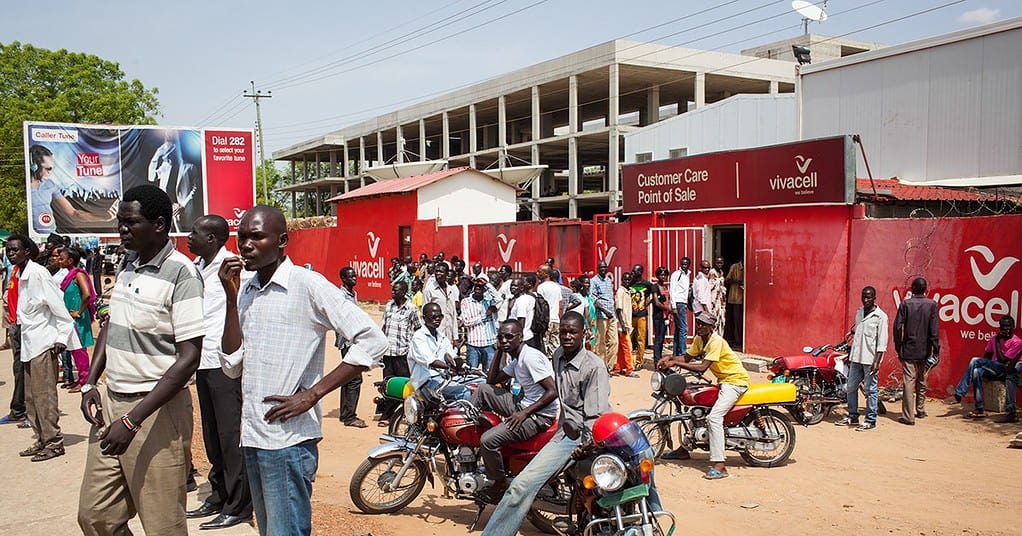
Current International Dollars: 476 | View South Sudan’s GDP & Economic Data
The very poorest of the world’s poorest countries, South Sudan has been wracked by violence since its creation in 2011. Rich in oil reserves, the landlocked state of roughly 11 million represents a textbook example of the “resource curse,” whereby abundance fosters political and social divisions, inequality, corruption and warfare. The majority of the population is employed in traditional agriculture, although violence and extreme climate events often prevent farmers from planting or harvesting crops. According to the World Bank, over 9 million people were estimated to need humanitarian assistance in 2023, an increase of half a million people compared to the previous year.
World’s Poorest Countries 2024
| Rank | Country/Territory | GDP-PPP per capita ($) |
| 1 | 🇸🇸South Sudan | 476 |
| 2 | 🇧🇮Burundi | 890 |
| 3 | 🇨🇫Central African Republic | 1,109 |
| 4 | 🇨🇩Democratic Republic of the Congo | 1,579 |
| 5 | 🇳🇪Niger | 1,579 |
| 6 | 🇲🇿Mozambique | 1,584 |
| 7 | 🇲🇼Malawi | 1,668 |
| 8 | 🇱🇷Liberia | 1,789 |
| 9 | 🇹🇩Chad | 1,807 |
| 10 | 🇲🇬Madagascar | 1,907 |
| 11 | 🇸🇴Somalia | 1,510 |
| 12 | 🇾🇪Yemen | 2,053 |
| 13 | 🇸🇱Sierra Leone | 2,097 |
| 14 | 🇰🇮Kiribati | 2,381 |
| 15 | 🇸🇧Solomon Islands | 2,411 |
| 16 | 🇲🇱Mali | 2,639 |
| 17 | 🇻🇺Burkina Faso | 2,683 |
| 18 | 🇬🇲Zimbabwe | 2,750 |
| 19 | 🇹🇬Togo | 2,768 |
| 20 | 🇬🇲The Gambia | 2,837 |
| 21 | 🇻🇺Vanuatu | 2,940 |
| 22 | 🇬🇼Guinea-Bissau | 3,072 |
| 23 | 🇷🇼Rwanda | 3,137 |
| 24 | 🇭🇹Haiti | 3,186 |
| 25 | 🇺🇬Uganda | 3,222 |
| 26 | 🇱🇸Lesotho | 3,235 |
| 27 | 🇬🇳Guinea | 3,088 |
| 28 | 🇵🇬Papua New Guinea | 4,516 |
| 29 | 🇰🇲Comoros | 3,464 |
| 30 | 🇹🇿Tanzania | 3,595 |
| 31 | 🇸🇩Sudan | 3,605 |
| 32 | 🇪🇹Ethiopia | 3,719 |
| 33 | 🇹🇱Timor-Leste | 3,747 |
| 34 | 🇫🇲Micronesia | 3,922 |
| 35 | 🇿🇲Zambia | 4,068 |
| 36 | 🇸🇹São Tomé and Príncipe | 4,147 |
| 37 | 🇧🇯Benin | 4,305 |
| 38 | 🇸🇳Senegal | 4,515 |
| 39 | 🇨🇲Cameroon | 4,665 |
| 40 | 🇳🇵Nepal | 4,934 |
| 41 | 🇲🇲Myanmar | 5,124 |
| 42 | 🇹🇯Tajikistan | 5,361 |
| 43 | 🇨🇬Republic of the Congo | 5,552 |
| 44 | 🇹🇻Tuvalu | 5,766 |
| 45 | 🇲🇭Marshall Islands | 4,669 |
| 46 | 🇰🇭Cambodia | 6,087 |
| 47 | 🇳🇬Nigeria | 6,148 |
| 48 | 🇰🇬Kyrgyz Republic | 6,438 |
| 49 | 🇼🇸Samoa | 6,544 |
| 50 | 🇰🇪Kenya | 6,577 |
| 51 | 🇵🇸West Bank and Gaza | 6,642 |
| 52 | 🇵🇰Pakistan | 6,774 |
| 53 | 🇬🇭Ghana | 6,905 |
| 54 | 🇨🇮Côte d’Ivoire | 6,960 |
| 55 | 🇩🇯Djibouti | 6,985 |
| 56 | 🇦🇴Angola | 7,077 |
| 57 | 🇹🇴Tonga | 7,127 |
| 58 | 🇭🇳Honduras | 7,163 |
| 59 | 🇲🇷Mauritania | 7,542 |
| 60 | 🇳🇮Nicaragua | 7,642 |
| 61 | 🇻🇪Venezuela | 7,985 |
| 62 | 🇧🇩Bangladesh | 8,673 |
| 63 | 🇮🇳India | 9,183 |
| 64 | 🇱🇦Lao P.D.R. | 9,787 |
| 65 | 🇨🇻Cabo Verde | 9,909 |
| 66 | 🇺🇿Uzbekistan | 10,316 |
| 67 | 🇧🇴Bolivia | 10,340 |
| 68 | 🇲🇦Morocco | 10,408 |
| 69 | 🇬🇹Guatemala | 10,595 |
| 70 | 🇧🇿Belize | 11,166 |
| 71 | 🇳🇷Nauru | 11,169 |
| 72 | 🇵🇭Philippines | 11,326 |
| 73 | 🇳🇦Namibia | 11,603 |
| 74 | 🇸🇻El Salvador | 11,717 |
| 75 | 🇮🇶Iraq | 11,742 |
| 76 | 🇸🇿Eswatini | 11,859 |
| 77 | 🇯🇴Jordan | 12,809 |
| 78 | 🇯🇲Jamaica | 12,995 |
| 79 | 🇹🇳Tunisia | 13,249 |
| 80 | 🇪🇨Ecuador | 13,285 |
| 81 | 🇩🇿Algeria | 13,682 |
| 82 | 🇩🇲Vietnam | 14,285 |
| 83 | 🇮🇩Bhutan | 14,297 |
| 84 | 🇺🇦Ukraine | 14,304 |
| 85 | 🇩🇲Dominica | 14,348 |
| 86 | 🇲🇳Mongolia | 15,088 |
| 87 | 🇵🇼Palau | 15,170 |
| 88 | 🇵🇾Paraguay | 15,533 |
| 89 | 🇽🇰Kosovo | 15,767 |
| 90 | 🇮🇩Indonesia | 15,836 |
| 91 | 🇵🇪Peru | 15,894 |
| 92 | 🇿🇦South Africa | 16,211 |
| 93 | 🇫🇯Fiji | 16,564 |
| 94 | 🇲🇩Moldova | 16,916 |
| 95 | 🇪🇬Egypt | 17,123 |
| 96 | 🇻🇨St. Vincent and the Grenadines | 17,840 |
| 97 | 🇸🇷Suriname | 18,311 |
| 98 | 🇬🇶Equatorial Guinea | 18,363 |
| 99 | 🇦🇿Azerbaijan | 18,694 |
| 100 | 🇧🇧Barbados | 18,738 |
Source: International Monetary Fund, World Economic Outlook October 2023. The list above of the poorest countries in the world measures 97 countries by GDP and PPP and ranks them from poorest to richest. These values are expressed in current international dollars, reflecting the corresponding exchange rates and PPP adjustments.
Poorest Countries in Each Continent
The section below lists the poorest country in the following continents: Africa, Asia, Australia, Europe, North America and South America.
Poorest Country in Africa
The poorest country in Africa is South Sudan.
Poorest Country in Asia
The poorest country in Asia is Nepal.
Poorest Country in Australia
The poorest country in the continent of Australia is Papua New Guinea.
Poorest Country in Europe
The poorest country in Europe is Ukraine.
Poorest Country in North America
The poorest country in North America is Haiti.
Poorest Country in South America
The poorest country in South America is Venezuela.
